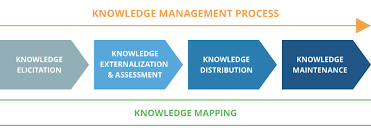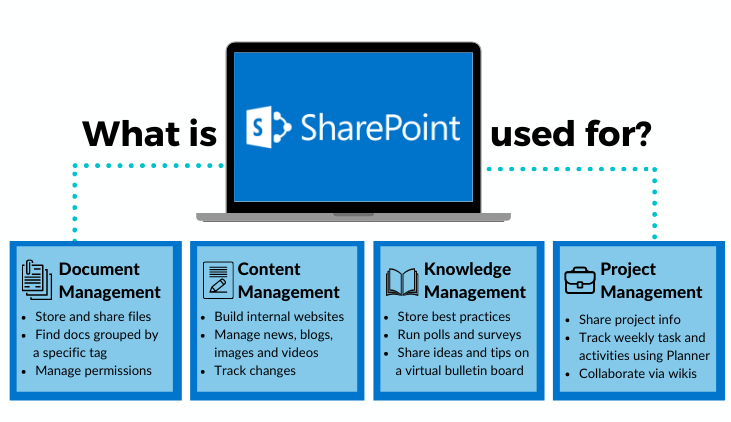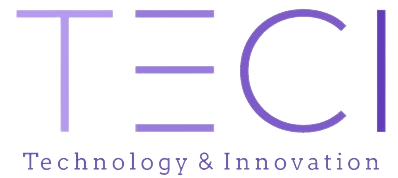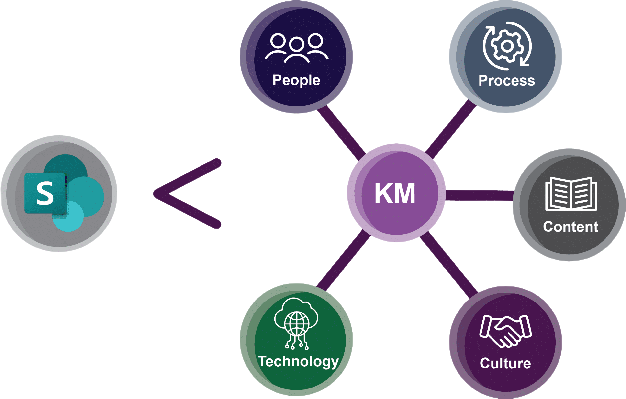Our SharePoint Knowledge Management Strategy
We base our approach to offering SharePoint knowledge management solutions on ideas produced by knowledge management scholars and practitioners. Using knowledge science ideas, we created our own unique knowledge management framework that handles a variety of knowledge management components such as knowledge acquisition, expression, distribution, and upkeep.

The knowledge management solutions we offer
SharePoint Wiki
We adapt the pre-built SharePoint wiki page libraries to assist enterprises in gathering, organizing and making their corporate knowledge easily accessible and reusable. Our SharePoint wiki solutions are customized to our client’s needs, allowing their staff to create a knowledge base or an encyclopedia, record innovative ideas, and host brainstorming sessions. We provide tailored metadata and indexing systems that allow users to easily filter and identify relevant knowledge items with a few mouse clicks.
SharePoint Knowledge Management Site
We provide individualized knowledge management systems that allow employees to not only save their information but also to collaborate and constantly enhance it. We supplement traditional SharePoint sites with specialized blogs and forums, discussion boards and chats, knowledge libraries, and FAQ sections to facilitate simple information exchange and use. Our SharePoint knowledge management sites are designed for teams to collect project-specific knowledge, as well as for public knowledge management sites to allow open information circulation across the business.
SharePoint Knowledge Management Portal
We can build a comprehensive knowledge management gateway in SharePoint or Office 365 that incorporates a variety of knowledge management features. Our method contains critical information management elements that enable systematic knowledge storage, interactive knowledge exchange, and broad search. Furthermore, we provide personalized features that enable workers to contribute to the organization’s knowledge, share their expertise, participate in learning activities, improve their skills and competencies, track their personal progress, and evaluate their knowledge improvement.
SharePoint-Centric Collaboration Tools
We also assist businesses who may not be ready for a full-fledged knowledge management solution but are interested in exploring lightweight alternatives. We incorporate knowledge-oriented collaborative technologies that promote information exchange and secure sharing.
What is SharePoint and Why Use It?

Shared Knowledge Management Difficulties
When organizational information is difficult to obtain and use, it can result in complex workflows, inconsistent business processes, and poor employee performance since employees may rely only on their own expertise.
Our Solution:
We improve your SharePoint and Office 365 solutions to help you manage your material more successfully by concentrating on metadata and content indexing to enable quick knowledge retrieval. We examine and configure your SharePoint wikis and knowledge sites to fit your knowledge management requirements. We also enable cross-employee searches to quickly identify knowledge owners.
When people are hesitant to share their important tacit and explicit information, knowledge silos can form. Several groups of knowledge owners frequently do not collaborate and maintain their unique expertise to themselves.
Our Solution:
We provide knowledge-sharing technologies that allow employees to effortlessly communicate their expertise without putting in a lot of effort or time. Furthermore, we provide motivating aspects that encourage employees to feel appreciated and recognized for their knowledge contributions.
When a person with highly specialized and valued expertise leaves the organization, severe knowledge loss can occur.
Our Solution:
To prevent knowledge loss, we provide capabilities for knowledge externalization and smooth knowledge distribution via the push mode. Corporate training sessions and courses, Communities of Practice (CoP), workshops, expert forums, and blogs are examples of collaborative knowledge transmission approaches.
When a company fails to assess the quality of its knowledge, it can lead to commercial issues and internal disputes.
Our Solution:
To keep corporate knowledge from becoming stagnant, we prioritize solutions for easy knowledge maintenance. We use automated procedures to provide timely knowledge updates and continual inspection of knowledge items based on pre-defined qualities (such as last retrieval, last modification, popularity, etc.).


